| Author | Cowie, Annette |
| Date Accessioned | 2024-01-05 |
| Date Available | 2024-01-05 |
| Issued | 2023-04 |
| Identifier | https://hdl.handle.net/11079/18297 |
| Abstract | This document accompanies the Methods and Data Guidance (Sevenster et al., 2023) and Common Terminology (Cowie et al., 2023) documents to provide a non-technical description of the project that led to the development of those documents, and an executive summary of the key technical decisions in the Methods and Data Guidance document. It is intended for industry decision makers without expert knowledge of greenhouse gas (GHG) accounting, and to be read in conjunction with the two technical documents.
The need for a common approach to GHG accounting across agricultural sectors was identified in a stakeholder workshop in December 2019 with participants representing most Rural Research and Development Corporations (RDCs), the National Farmers Federation and sector-level peak bodies, federal and state government, AFI, Rabobank and expert consultants. As sector-level reporting was starting to become important (e.g. Mayberry et al. 2018), the lack of clear methodological guidance for this type of GHG accounting was clear.
A collaborative project was developed, initially by the Climate Research Strategy for Primary Industries (CRSPI) collaboration and then by Agricultural Innovation Australia (AIA), who commissioned CSIRO and a large team of subcontractors to conduct an interactive, collaborative process to develop such guidance with broad support from both agricultural sectors and technical experts.
The scope of the project was to develop a consistent common framework for agriculture GHG baseline accounting at sector level (i.e. a Common Approach). Implementation of the framework was not part of the project and is up to each sector individually. While many stakeholders contributed to the development of the Common Approach there is no obligation or commitment on any party to implement it. The Common Approach is a state-of-the-art, best practice guidance for sector-level GHG accounting and can be seen as aspirational; guiding improvements in data collection and GHG reporting over time across Australia’s agricultural sectors. |
| dc.description.sponsorship | AIA, CSIRO, QUT, NSW Department of Primary Industries, University of Melbourne, Integrity AG & Environment, Australian Wine Research Institute, SRA |
| Part of Series | RM4;2020/017 |
| Subject | greenhouse gas accounting for australian agriculture |
| Title | A Common Approach to Greenhouse-Gas Accounting for Australian Agriculture: Project Overview & Non-Technical Summary |
| dc.type | Technical Report |

